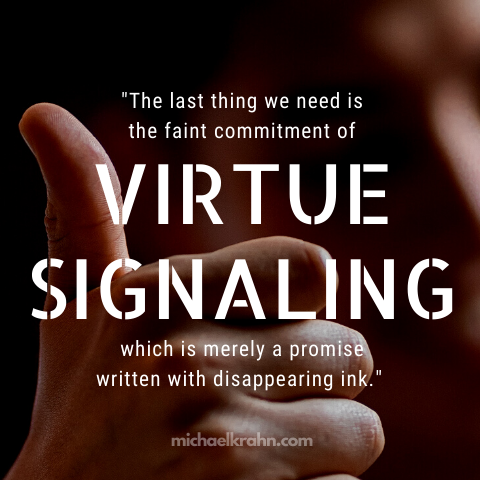When a person is murdered by someone in authority who has sworn to protect them, we should be filled with grief and anger and we should take time to lament. If your first response to recent events is not to lament but to figure out “which side” you’re on, your priorities have been shaped not by the wisdom of God’s word but by the rantings of – take your pick – CNN or Fox News reporters.
One who promised to serve and protect instead did fatal harm. This is injustice, it deserves our attention, and it demands that we become more attentive generally to violence and abuse of authority in our society, and specifically that we seek to understand and eradicate violence that is racially motivated.
Lawlessness of All Kinds
This act of cowardly and cruel lawlessness has ignited riots and looting that must also be described as lawlessness. Some looters may admit to simply taking advantage, but most seem to have deeper and more complicated motives. We respond to the unlawful violence of a police officer abusing his authority with outright condemnation. How should we respond to the violent acts committed in response? Clearly, unlawful violence can never be condoned or justified, but we should make a fervent attempt to understand why it is happening.
From years of talking to people as a pastor, I can tell you that people behave in unconscionable ways every day. But in order to love such people well it is important to both call out sin and at the same time seek to understand what cultivated and ignited such behaviour. The rioters and looters are sinning in stealing and destroying property and, in some cases, brutalizing bystanders and store owners. We can call all of that sin and at the same time look behind the sin and try to address whatever that pursuit of knowledge reveals. The first thing we see when we look closely at what is happening is a lot of anger.
Righteous and Unrighteous Anger Leads to Lawful and Unlawful Violence
Both peaceful demonstrators and violent rioters are consumed with a hot anger that has accumulated over time as images of one killing after another come to our attention. Within that hot anger is a mixture of righteous and unrighteousness anger. How can you tell the difference? Righteous anger rarely leads to violence, but when it does it can be lawful violence. When righteous anger leads to lawful violence, it is always a restrained violence – so restrained, in fact, that it barely passes as violence. In John 2:15 we read this about Jesus: “And making a whip of cords, he drove them all out of the temple, with the sheep and oxen. And he poured out the coins of the money-changers and overturned their tables.” Jesus took physical, some would say even violent action in the name of restoring the honour of God’s house.
Could this type of action have saved George Floyd’s life? What if a bystander, filled with righteous anger, had attempted to intervene in the name of preserving the dignity of a human being created in the image of God? Could that subsequently have led to the death of the one trying to intervene? Yes, but “Greater love has no one than this, that someone lay down his life for his friends.” (John 15:13) Would I be willing to lay my life down in such a situation so that George Floyd’s life could be spared? I’d like to believe that I would but, honestly and sadly, I would probably reason my way out of that opportunity.
Righteous anger can lead to a lawful and justified, but restrained and purposeful violence. Unrighteous anger, on the other hand, often results in unlawful violence, violence that has nothing to do with restoring the honour of God’s name or protecting the dignity of those made in his image. Derek Chauvin used unlawful violence; now rioters and looters are doing the same. In both cases we must condemn the violence while seeking to love well the violent offenders.
A Distorted View of Lawful Violence
It’s worth noting that the violence that’s happening in American streets right now all fits perfectly within the ethos we’ve trained ourselves to believe by watching innumerable Hollywood movies. Many have come to believe that all that’s needed to justify violence is violence done to you or one of your loved ones by someone deemed inherently and irredeemable evil (I’m looking at you, John Wick… also, almost every movie Liam Neeson has done in the last decade). This is not a biblical view but it is commonly accepted as true, and this is what is playing out in the streets.
We passively absorb this philosophy and while it may not automatically make us into violent people, it seeps into our our foundational beliefs and distorts our understanding of justice, blurring the distinction between lawful and unlawful violence. We cannot condone or approve of any unlawful violence – not the unlawful violence a police officer placing his knee on the back of a man’s neck, nor the unlawful violence of angry rioters destroying, burning, and looting in response.
We can, however, join with and support peaceful demonstrators in concrete ways. Let me emphasize – IN CONCRETE WAYS. The last thing we need is the faint commitment of virtue signalling, which is merely a promise written with disappearing ink. Such easily issued words are just as easily forgotten.
Let’s Talk About This
As a church leader, what concrete actions can I take? Speaking out is only a first step. We need to have this conversation in the church, but how? It is said that Sunday mornings are the most segregated times of the week. That observation, which doubles as a condemnation, is a valid one where there is racial diversity in the community but racial uniformity in the churches. Specific to my context – and maybe yours too – living in a town with almost no racial diversity, how do we show by word and action that we believe racism is unbiblical and therefore evil?
Please chime in either in the comments below, by email, in the Facebook comments or any other avenue you might want to use.
This Will All End
This all has me longing for the fulfillment of the promises of Revelation 21:3-5:
And I heard a loud voice from the throne saying, “Behold, the dwelling place of God is with man. He will dwell with them, and they will be his people, and God himself will be with them as their God. He will wipe away every tear from their eyes, and death shall be no more, neither shall there be mourning, nor crying, nor pain anymore, for the former things have passed away.” And he who was seated on the throne said, “Behold, I am making all things new.”
We will someday stand together with people of all races and nations in the presence of God and there will be no anger, no violence, no rioting or protesting. There will be no need for the mediation of law enforcement. Strife will have ended and unity will be the law of the land. Until then, we must continue to seek God’s kingdom in this life as we bring as much of it into this world as we can – by word and by action.
Have your say:


